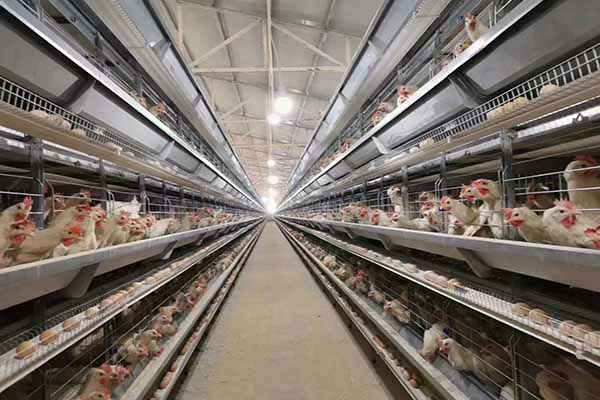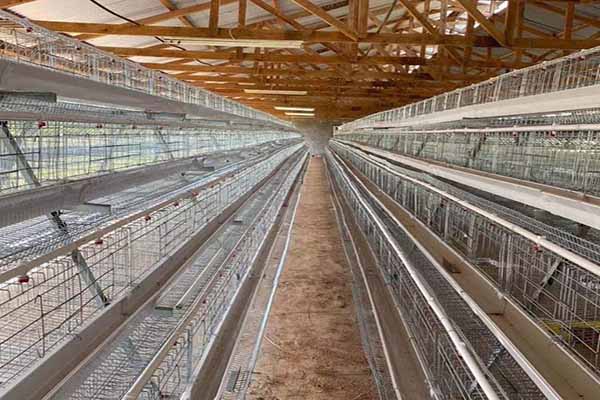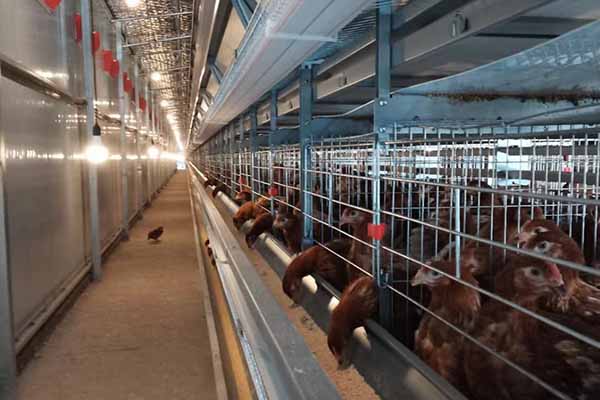Improved Kienyeji Poultry Farming in Kenya: A Comprehensive Guide
Time : 2025-05-12
Kenya has long been a leading country in poultry farming, especially with the popular Kienyeji chicken. However, there’s always room for improvement. In this article, we’ll delve into the concept of improved Kienyeji poultry farming in Kenya, exploring what it entails, the benefits, and how it can be implemented effectively.

What is Improved Kienyeji Poultry Farming?
Improved Kienyeji poultry farming is an approach that enhances the traditional Kienyeji farming methods. It involves introducing better practices, such as improved breeds, better nutrition, health management, and environmental considerations. The goal is to increase productivity, reduce costs, and ensure sustainable farming practices.
Benefits of Improved Kienyeji Poultry Farming
Here are some of the key benefits of adopting improved Kienyeji poultry farming in Kenya:
- Increased Productivity: Improved breeds and farming practices can lead to higher egg and meat production.
- Better Health: With better nutrition and health management, Kienyeji chickens are less likely to fall ill, leading to lower mortality rates.
- Financial Gains: Higher productivity and lower costs can result in increased profits for farmers.
- Sustainability: Improved farming practices are more environmentally friendly, reducing the carbon footprint and promoting sustainable agriculture.
Implementing Improved Kienyeji Poultry Farming
Transitioning to improved Kienyeji poultry farming requires a strategic approach. Here are some steps to consider:
1. Selecting the Right Breeds
One of the first steps is to choose the right breeds. Improved Kienyeji chickens are typically selected for their desirable traits, such as higher productivity, better growth rates, and disease resistance.
2. Ensuring Proper Nutrition
A balanced diet is crucial for the health and productivity of Kienyeji chickens. This includes providing a mix of grains, vitamins, minerals, and amino acids. It’s important to consult with poultry nutrition experts to develop a diet that meets the specific needs of your flock.

3. Health Management
Regular health checks, vaccination programs, and disease prevention measures are essential for keeping your chickens healthy. This may involve working with veterinarians to develop a health management plan tailored to your farm’s needs.
4. Environmental Considerations
Improving the living conditions of your chickens is not only ethical but also beneficial for their health and productivity. Consider factors such as proper ventilation, adequate space, and waste management to create a comfortable environment for your flock.
Challenges and Solutions
While improved Kienyeji poultry farming offers numerous benefits, it’s not without its challenges. Here are some common challenges and their solutions:
- Initial Costs: Improving your farming practices may require an upfront investment. However, the long-term benefits often outweigh the initial costs.
- Access to Resources: Some farmers may lack access to the necessary resources for improved farming practices. Collaborating with local organizations, government agencies, and agricultural extension services can help bridge this gap.
- Lack of Training: Many farmers may not be aware of the benefits of improved poultry farming. Providing training sessions and workshops can help farmers understand and adopt these practices.
Success Stories
Several farmers in Kenya have successfully transitioned to improved Kienyeji poultry farming. Here are a few success stories to inspire others:
John, a small-scale farmer from Nakuru, started with 50 Kienyeji chickens. By adopting improved farming practices, he increased his flock size to 200 and saw a 30% increase in egg production. John’s income has more than doubled, allowing him to provide a better life for his family.
Jane, a poultry farmer in Kiambu, faced challenges with disease outbreaks. After implementing improved health management practices, her chicken mortality rate dropped significantly. Jane’s business is now more sustainable and profitable.
Conclusion
Improved Kienyeji poultry farming in Kenya has the potential to transform the poultry industry, benefiting farmers, consumers, and the environment. By embracing better practices, farmers can increase productivity, improve the health of their chickens, and secure a sustainable future for their businesses.

So, if you’re a Kienyeji poultry farmer in Kenya or considering becoming one, don’t hesitate to explore the benefits of improved poultry farming. It might just be the key to a more profitable and sustainable farming journey.











